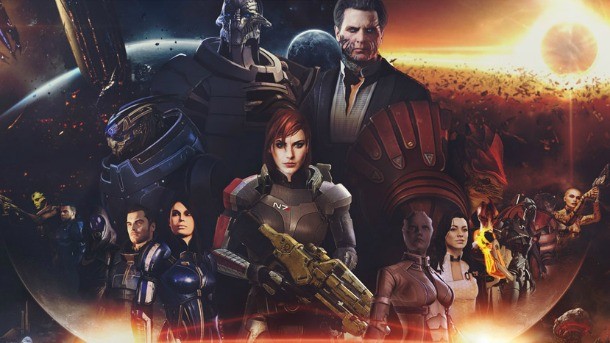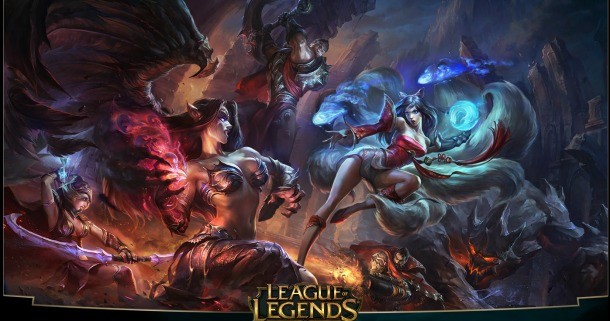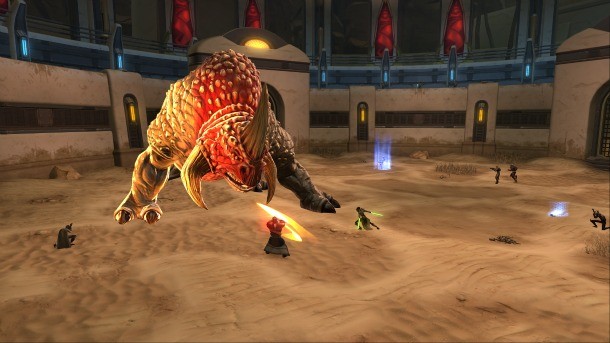Please support Game Informer. Print magazine subscriptions are less than $2 per issue
Do Updates Change Games For The Better?

It used to be that once a developer released a game it was finished. No matter how much a developer wanted to continue working on the title, the game was done. NES titles from 30 years ago play exactly the same today as they did when they first hit store shelves. Today’s gaming world is not nearly as static.
Games are an iterative process; a title evolves a great deal as a developer works on it, but until the last few years, that process stopped once the game was released. Thanks to our constantly connected world, however, developers now have the opportunity to modify games after launch, which begs the question, “Is a game ever really done?” Join us as we examine some of the many ways developers change their titles and some of the risks associated with those changes.
They Squash Bugs
Fixing bugs is one of the most common ways that developers update their games, and it makes sense as it allows titles like Skyrim, which was notoriously bug-riddled on PS3, to become more playable. Many games release with animation glitches or broken A.I. behavior that only manifests itself on rare occasions. This makes it hard for a developer to find and fix every bug in a massive title. Series like Battlefield, Assassin’s Creed, and Fallout have all benefited greatly from post-release patches.
Why it’s risky: Many gamers fear that bug patches make it easier for developers to release their games before they’re truly ready for release. After all, if a developer can patch many of a game's bugs after its release, then they’ll have more time to work on the systems they want to see in the game, right? This kind of thinking is dangerous and can lead to games not getting enough quality assurance before release.
They Allow Developers To Update Broken Gameplay Systems
Sometimes even when a game works as a developer intended, it’s still not fun. Thankfully, developers can alter gameplay systems even after a game has released. Capcom famously changed Resident Evil 6’s camera, widening the player’s point of view to make it easier to take in the action. Similarly, Diablo III’s Loot 2.0 completely changed the game. Diablo III was already a fun title, but Loot 2.0 made it easier to find more and better loot for your characters.
Why it’s risky: It’s great that developers can now listen to fan feedback and fix gameplay issues after release, but if these issues aren’t fixed before a game launches, the initial stream of bad press can sour the public’s opinion and make it challenging to draw in new players no matter how many updates a developer releases.

They Add New Content
All of a game’s content doesn’t need to be contained on a single disc anymore. Through the magic of online servers, developers can add free, new content even after its release. MMOs have often taken this approach to game development (World of Warcraft has been redesigned several times since its initial release), but now many games without subscription fees are also taking this approach. MOBAs such as League of Legends and DOTA as well as mobile titles like Cut The Rope and Infinity Blade are good examples of titles that release bonus content even months after their initial release.
Why it’s risky: It’s hard to argue with free new content. We’ll take more, please.
They Recast The Story
Changing a game’s story after its release is not common, but BioWare didn't back away from this idea when it changed the ending to Mass Effect 3. After a massive fan outcry over the Mass Effect 3's ending, BioWare added a few minutes of footage that the studio felt would help clarify the ending. While, this event was fairly unprecedented, it will be interesting to see if more developers take this approach, and even alter their narratives more dramatically in the future.
Why it’s risky: Fans often get extremely passionate about the fiction of their favorite franchises. While a change to a story might placate some players, it risks upsetting others. Any change made to a game’s narrative also casts into question the integrity of the developer’s original vision. The volatile nature of retconning a game's story is probably why we haven’t seen this happen very often…yet.

They Make Games Free
The free-to-play market has boomed over the course of the last decade. So much so, that games that once had a price tag are now free-to-play. Many MMOs such as a Star Wars: The Old Republic and DC Universe Online have taken this approach, but even non-MMOs, such as Team Fortress 2 have also explored this new model.
Why it’s risky: While moving a game into the free-to-play space can attract a lot of new players, it can still be a gamble. Early adopters might get turned off by the fact that they once had to pay for the game. More importantly, once a game goes free-to-play, it often adopts a microtransaction model. Microtransactions can be a useful way for developer to make money off their games, but if these models feel exploitative then players might stop playing the game altogether.
They Let Us Play Games Before They’re Out
Back in 2009, Markus "Notch" Persson released an experimental indie project called Minecraft. The game wouldn’t “officially” release for another two-and-a-half years, but those who purchased the game in alpha/beta got to watch the title evolve into the massively successful crafting simulation that it is today. Since Minecraft, several games such as Hearthstone, Smite, Starbound, and nearly every other PC game coming down the pipe have adopted this distribution approach. Extensive betas now seem to be the norm rather than the exception.
Why it’s risky: Much like changing a game before its release, giving players access to a game too early can be problematic. If a game isn’t fun when players start playing it, they might not want to come back after the game has been further iterated on.
In most cases, the changes listed above are for the best, but anytime a developer alters a game after launch, it runs the risk of breaking some other part of the experience. This happens most commonly with bugs, but it can also be a risk when a developer is changing other aspects of a title. The more changes a developer makesafter release, the more it risks muddying the game’s original vision. Updates are also hard to access for people who still don't have internet in their homes, and developers shouldn't leave them out in the cold. Our constantly connected world has allowed developers to modify their games in new and powerful ways, but let’s hope they continue to use this power responsibly.










